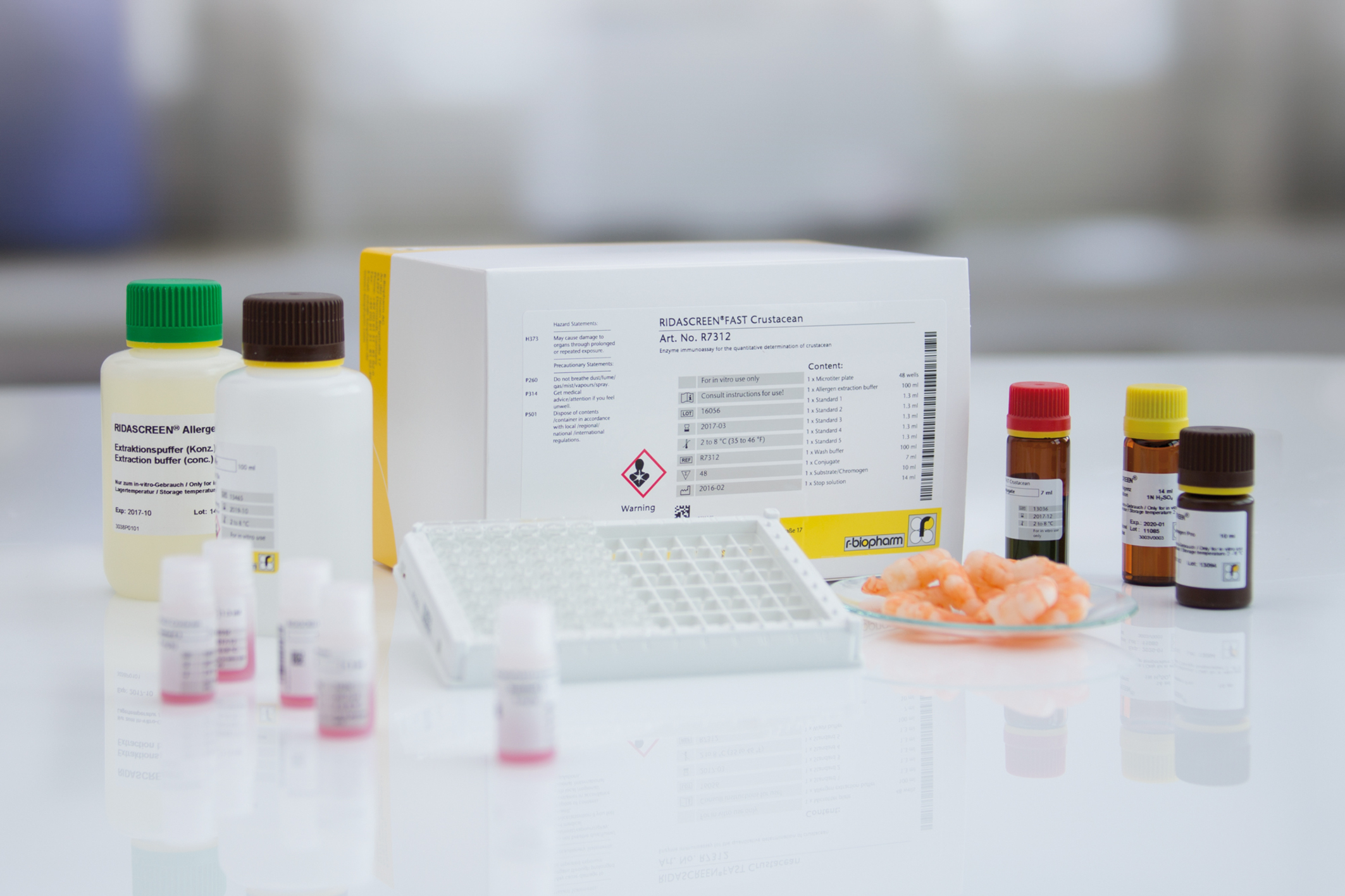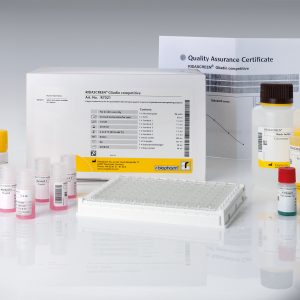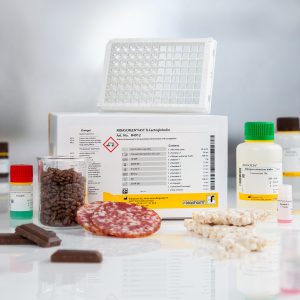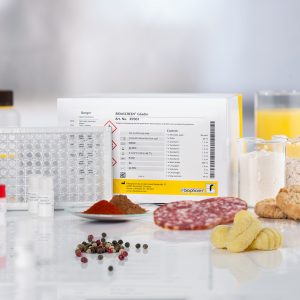Description
Intended use:
RIDASCREEN®FAST Crustacean is a sandwich enzyme immunoassay for the quantitative analysis of crustaceans which can be present as ingredient or contamination in raw or cooked food.
General Information:
Shrimp, crab, prawns, krill, lobster, langouste and crayfish are described as crustaceans. Especially, the muscle protein tropomyosin can cause allergic reactions. Severe sensitizations are not rare. Allergies to crustaceans occur more frequently in adult people and remain there for life. For crustaceans, a reference dose of 10 mg crustacean-protein was determined (Vital concept). Assuming an average protein content of crustaceans of 20 %, this corresponds to 50 mg crustacean. The RIDASCREEN®FAST Crustacean 2nd generation (R7312) is thus sensitive enough to enable food allergen labeling according to the VITAL concept.
Crustaceans can be present as an ingredient or as a contamination in raw and processed products. According to the regulation (EU) No. 1169/2011, crustaceans must be declared on food labels as they can induce allergic reactions. Similar regulations exist e.g. in the USA, Canada, Australia and New Zealand.
| Article Numbers | R7312 |
|---|---|
| Test format | Microtiter plate with 48 wells (6 strips with 8 removable wells each) |
| Sample preparation | Homogenization, extraction and centrifugation |
| Incubation time | 30 min Room temperature |
| LOD (Detection limit) | 2.0 mg / kg (ppm) crustacean (mean) 0.9 – 2.6 mg / kg (ppm) crustacean* *depending on matrix |
| LOQ (Limit of quantification) | 20 – 160 mg / kg (ppm) crustacean |
| Cross reactivity | Minor cross-reaction was detected with mustard, curcuma, beans, mussels and arthropods. |
| Available application notes |
|
| Detected analyte | Crustacean-proteins (mainly tropomyosin) |
| Evaluation | Microtiter plate spectrophotometer (450 nm) |
| Instructions | |
|---|---|
| MSDS |




